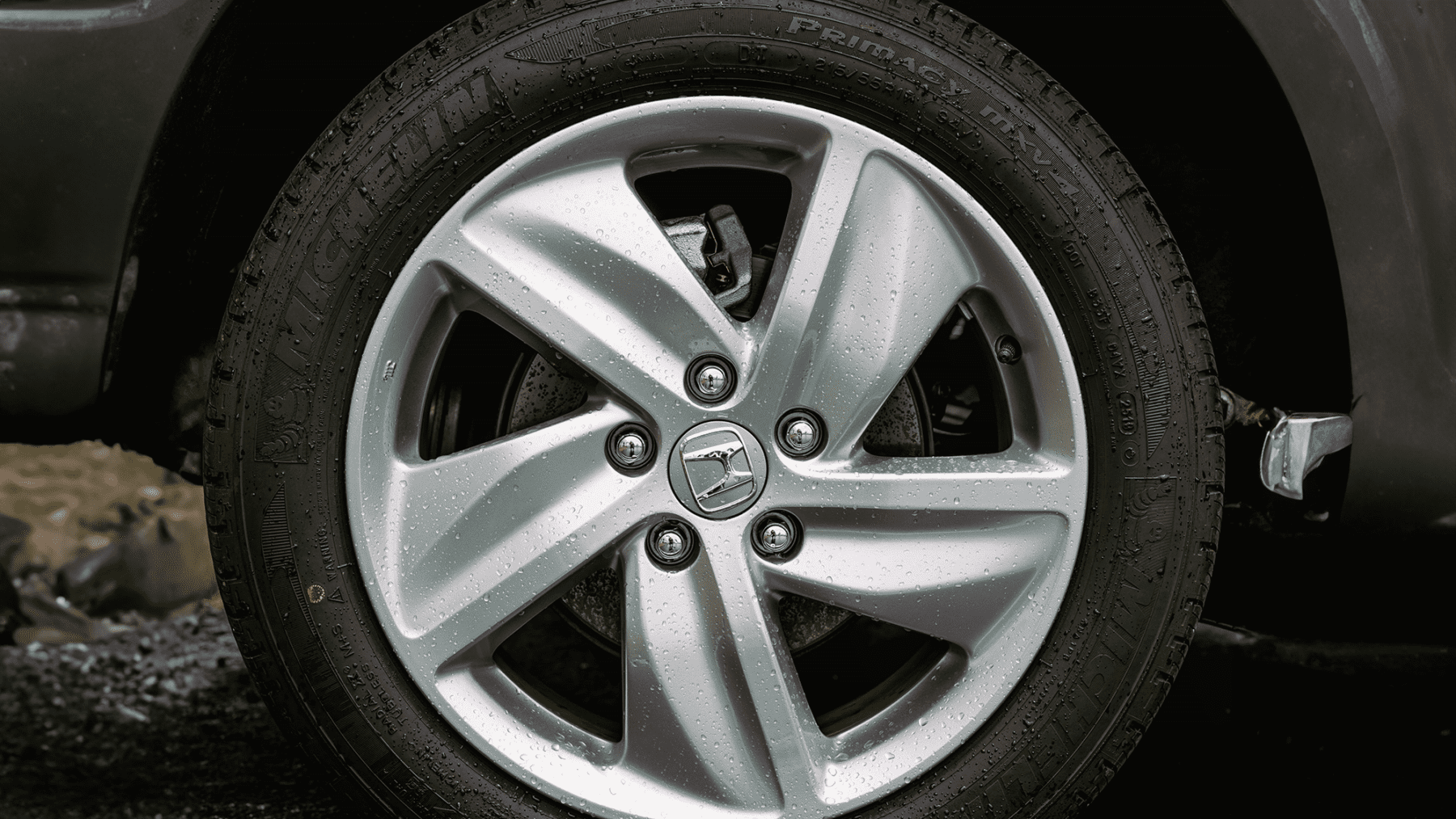The Essential Guide to Honda Brake Pad Replacement in Wilmette

Understanding Your Honda’s Brake System

Before we delve into the specifics of brake pad replacement, it’s vital to understand the basics of your Honda’s brake system. When you push down on the brake pedal, hydraulic fluid is sent to your brake calipers, causing them to squeeze the brake pads against the rotors. This friction slows down your vehicle and eventually brings it to a stop.
The brake pads bear the brunt of this process, and over time, they gradually wear down. This wear is normal, but when the brake pads become too thin, they won’t function effectively, endangering your safety on the road.



Signs That It’s Time for a Honda Brake Pad Replacement in Wilmette
- Squealing or Screeching Noise: If you hear a high-pitched noise when you apply the brakes, it could be an early sign that your brake pads are wearing thin.
- Deep Metallic Grinding and Growling: If ignored, the squealing will eventually turn into a sort of grinding or growling noise. This means the brake pads have worn out completely, and it’s the metal of the calipers grinding against the metal of the rotors.
- Vibration or Pulsation in the Brake Pedal: If you feel a vibration or pulsation in the brake pedal when you press it, this could be a sign of warped rotors, often caused by extremely worn brake pads.
- Visible Wear-and-Tear: If you can see that the brake pads are getting thin, this is a clear sign they need replacing. The pads should never be less than 1/4 inch thick.
- Slow Stopping Response: If your car is taking longer than usual to come to a stop when you apply the brakes, it may be due to worn brake pads.
- Screeching Despite New Pads: If you’ve recently replaced your brake pads and still hear a screeching noise, you should have them inspected, as it could indicate a problem.
- Extremely Sensitive Brake Pedal: If your brake pedal reacts strongly to even light pressure, this could mean there’s a problem with your brake pads or other parts of the braking system.
- Clicking Noise: A clicking noise when you apply the brakes can also be a sign of worn brake pads. Most vehicles are designed to make this noise to alert you when it’s time for new pads.
- Car Pulls To One Side: If your car pulls to one side when you brake, this could indicate that your brake pads are wearing unevenly and need to be replaced.
Choosing the Right Brake Pads for Your Honda
Selecting appropriate brake pads is crucial for Honda brake pad replacements in Wilmette. Brake pads vary in quality and the optimal choice for your Honda relies on the particular model of your vehicle, your driving style, and the usual conditions you drive under.
There are primarily four kinds of brake pads: semi-metallic, organic, low-metallic NAO, and ceramic. Each type comes with its own set of benefits and limitations, and gaining knowledge about these is essential for a well-informed choice.
- Semi-Metallic Brake Pads: These are durable and excellent for heat dissipation but can wear down the brake rotors faster.
- Organic Brake Pads: These are quiet and don’t wear down the rotors as quickly but don’t last as long as other types.
- Low-Metallic NAO Brake Pads: These offer good braking performance but can be noisy and produce more brake dust.
- Ceramic Brake Pads: These are quiet, produce less dust, and are very durable but can be more expensive.
The Process of Honda Brake Pad Replacement
- Safety First: Park your car on a flat surface and use a jack to lift the front or rear end of your Honda, depending on which brake pads you’re replacing. Always use jack stands to secure the vehicle.
- Remove the Wheel: Once the car is secure, remove the lug nuts and take off the wheel.
- Remove the Caliper: Locate the brake caliper and remove the bolts holding it in place. Slide the caliper off the rotor.
- Remove the Old Brake Pads: Now you’ll see the brake pads. Remove the old ones from the caliper.
- Install the New Brake Pads: Apply brake grease to the back of the new brake pads (not the side that touches the rotor) and install them in the caliper.
- Reinstall the Caliper and Wheel: Put the caliper back over the rotor, tighten the bolts, then put the wheel back on and tighten the lug nuts.
- Repeat for Other Wheels: Repeat this process for each wheel that needs new brake pads.
How Often Should You Replace Your Brake Pads?
The lifespan of brake pads varies depending on factors such as driving habits, driving conditions, and the quality of the brake pads themselves. However, a general rule of thumb is to replace your brake pads every 50,000 miles. Some may last for up to 70,000 miles, while others may need replacement after only 25,000 miles. It’s wise to have your brake pads inspected every time you get your oil changed. This can help identify wear and tear before it becomes a problem.
The Cost of Honda Brake Pad Replacement in Wilmette
The expense associated with swapping brake pads can significantly fluctuate based on the specifics of your Honda, the kind of brake pads selected, and whether you opt for a DIY approach or engage a professional.
Typically, if you employ a mechanic, the cost could range from $100 to $300 per axle. Opting to do it yourself could be a more economical choice, with the price of new brake pads falling between $35 and $150.
Why Choose a Professional for Your Brake Pad Replacement?
- Firstly, professionals have the right tools and expertise to do the job efficiently and correctly. They can also spot potential issues that you might overlook, such as leaks in the brake line or worn rotors.
- Secondly, doing it yourself can be time-consuming, especially if you’re not familiar with the process. A professional can usually get the job done within a few hours.
- Lastly, many auto repair shops offer warranties on their work, giving you peace of mind that if anything goes wrong, they’ll fix it at no extra charge.
HEART Auto Care: Your Go-To for Honda Brake Pad Replacement in Wilmette
If you’re in Wilmette and in need of a brake pad replacement, HEART Auto Care is your top choice for expert service and customer satisfaction. With years of experience and a team of certified technicians, we provide top-notch service that prioritizes your vehicle’s safety and performance. We understand the intricacies of Honda vehicles and use high-quality parts to ensure long-lasting results.
Don’t wait until it’s too late. If you suspect your Honda needs new brake pads, contact us at HEART Auto Care today. We’re here to help with all your car maintenance and auto repair needs.







